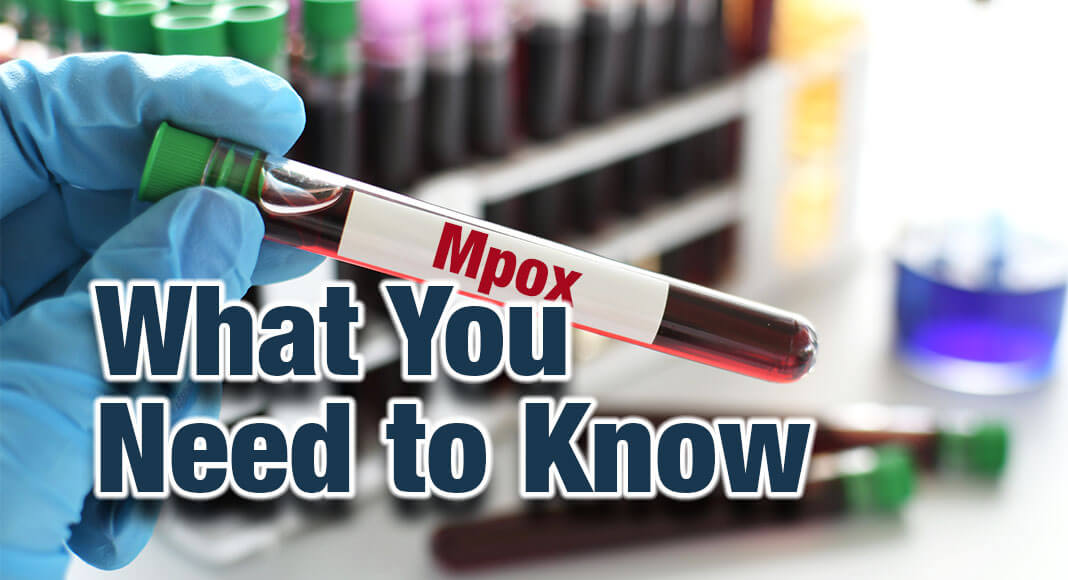
Mega Doctor News
By Children’s Hospital Los Angeles
Newswise — Since May 18, 2022, cases of mpox have been spreading in the United States, including California. On July 23, 2022, the World Health Organization (WHO) declared the current outbreak a public health emergency of international concern. We asked Erika Cheung, MSN, RN, CPN, Program Manager, Emergency Management in Quality Improvement and Patient Safety, to help explain everything families need to know about mpox, formerly called monkeypox.
What is mpox?
Mpox is a virus that is typically found in circulation within West and Central Africa. Occasionally, cases are exported by international travelers from countries in this region such as Nigeria and the Democratic Republic of Congo. Since May 2022, however, there has been an increase of mpox cases not associated with international travel reported in several other countries and regions.
What are the symptoms of mpox infection?
Patients with mpox often experience flu-like symptoms such as fever, headache and muscle aches, and swollen lymph nodes, followed by a pox-like rash on their face and/or body.
Symptoms usually begin five to 21 days after exposure, with the rash developing one to three days after the initial symptoms. Lesions generally appear at the same time and may develop all over the body, or only on specific body areas—especially the head/face, extremities, and palms or soles of the feet.
During this current outbreak, flu-like symptoms may not be present, or may begin after the rash. In addition, the rash may not appear all at the same time. Most people infected with mpox virus have a mild illness course that does not require specific treatments or therapy. But occasionally, severe cases may include other, more serious symptoms.
How is mpox virus spread?
People are considered infectious starting five days before rash onset and until all lesions have scabbed off. The virus is spread by:
- Direct contact with an infectious rash, scabs or body fluids
- Respiratory secretions during prolonged face-to-face contact
- Direct contact with contaminated materials (such as bedding, linen or clothing)
- Through the placenta in pregnant women
How do you test for mpox infection?
Mpox infection is diagnosed by testing a sample taken from skin lesions, not through a blood test.
How can I get my child tested for mpox?
Mpox testing is available at some of the major commercial laboratories. You can contact your primary care provider to find out where to get the test, and if the cost of testing is covered by your insurance.
What is the treatment for mpox infection?
Tecovirimat, also known as TPOXX or ST-246, is an antiviral drug that was approved by the FDA for the treatment of smallpox disease. The CDC has an Expanded Access Investigational New Drug protocol that allows use of tecovirimat for mpox.
This medication may not be necessary and is only recommended for people with severe disease, or for vulnerable populations who are at risk for developing severe disease.
Is there a vaccine to protect against mpox virus?
Jynneos, a live, nonreplicating vaccine, is approved by the Food and Drug Administration (FDA) for the prevention of smallpox and mpox in people over 18 years of age, and for those under 18 in special circumstances. The vaccination requires two subcutaneous injections given four weeks apart, and booster doses recommended every two years.
Who is eligible for mpox vaccination?
Due to limited vaccine supply in the United States, the Los Angeles County Department of Public Health is offering the Jynneos vaccine in phases. Currently the vaccine is only being offered to certain groups that have come into contact with confirmed cases, are at high risk of exposure, or have attended an event where an outbreak was identified. Visit the L.A. County Department of Public Health’s website to find the most up-to-date information on eligibility.
Is the mpox vaccine available at CHLA?
The JYNNEOS vaccine is only available to some patients seen in Adolescent and Young Adult Medicine.
I’ve heard that this disease is mainly affecting the LGBTQ+ community. Can children get mpox?
As of late July, the Centers for Disease Control and Prevention (CDC) had already confirmed two pediatric cases of mpox—one toddler in California and one infant on the East Coast. While the disease may be more common in adults in certain communities, it can spread to children who have direct contact with someone who has the disease.
What if my child has a rash?
Not all rashes are caused by the mpox virus. Sometimes, the rash may be confused with a common childhood illness called hand, foot and mouth disease, which is caused by the coxsackievirus. If you believe that your child may have mpox, please contact your pediatrician or primary care provider.
Are there long-term effects of having mpox?
According to the WHO, there can be complications from mpox, including secondary skin infections, bronchopneumonia, sepsis and encephalitis. If the infection affects the cornea of the eye, it can cause vision loss.










